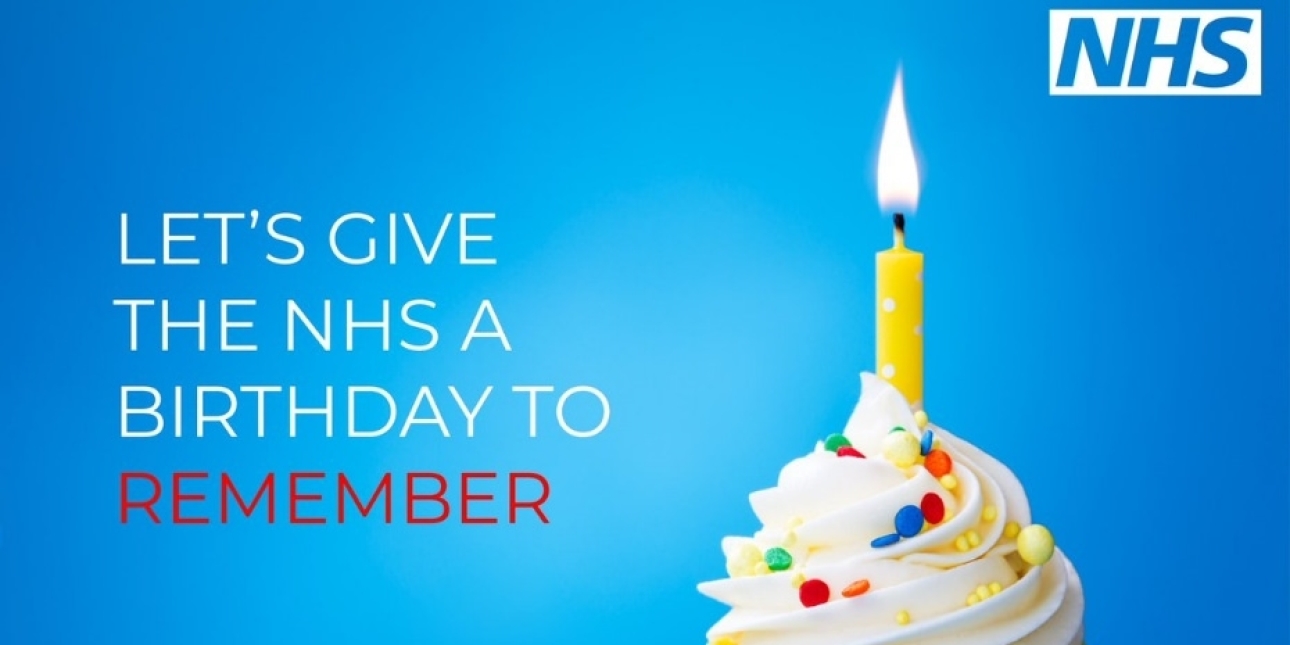PUBLIC RELATIONS
Wednesday 11th July 2018
NHS birthday campaigns shows the power of storytelling
On the NHS’s 70th birthday I have been reflecting on my time as an NHS communicator. Working in the health service has always been to embrace change – whether a total restructure or a shift in emphasis, change is a key part of what we do. Right now, I think the NHS is in an interesting environment, giving communicators an opportunity to galvanise as a group and to take some real strides forward.
A mere four days after its Big Birthday, the NHS experienced another change, with a new Secretary of State for Health in the form of the Matt Hancock. This will undoubtedly be a big shift for the sector after working under the longest serving Secretary of State for Health for the past six years.
At the same time, we are also in a position of stability which the NHS has never seen before. A long-term funding agreement secures the future of the NHS for the coming years, which will hopefully free up time for all staff, including communicators, to work together.
We are also riding on a wave of public affection about the NHS, thanks largely to an incredibly successful celebration of its birthday.
The NHS isn’t one organisation. It is an affiliation of thousands of different organisations, some SMEs, some big private providers and some entirely publicly funded, some government departments. All are contributing in different ways but we all share the goal to make things better for staff and better for patients. That joint enterprise and shared mission has the potential to make us an immensely powerful group if we can align some of our messaging and deliver it with real impact.
But the historic flux in the NHS has made it harder for communications leaders to work together on cohesive external communications strategies. There is always much to be done internally to keep the system running as it needs to. We can’t afford for the NHS to take a few months downtime whilst a restructure beds in, it needs to be there for us 24 hours a day, 7 days a week, 365 a days a year, no matter what. Managing the tactical and strategic communications around big changes and ongoing day to day requirements of the service can take up huge amount of resource, energy and creativity from what are often small teams.
I know that regionally NHS communications groups offer the opportunity to collaborate, share best practice and to work together wherever possible. When we do that, the opportunities are endless and we are now in a unique and exciting position to really capitalise on the work of those networks.
When we can work together creatively and strategically we can have a real impact and initiate important conversations across the population, for example with campaigns around public health or using and accessing services properly.
Looking at it, without having been involved in the national delivery in any way, the NHS’s 70th birthday was a masterclass of collaborative communications in action. With excellent support and structure from NHS England in the centre, NHS organisations across the country celebrated in style to reflect on the past 70 years and what we have achieved.
The things that made the birthday celebrations so successful were that there was a central team in NHS England managing the big ticket communications; that we had a strong and clear message to tell; and that the national team provided tools, ideas and frameworks, but these were there to be adapted to suit local needs and different organisations.
The other thing that the campaign did incredibly well was in telling stories. It focussed on the people who make the NHS, the experiences of those who have worked in it over the years and the impact the work of the NHS has had on patients. It was engaging, it was informative, it was authentic, and it was emotional. And that made it incredibly powerful and effective.
The 70th birthday has given a real platform for the NHS across the country to keep using the stories of individuals to initiate conversations.
This current wave of affection and rise in national consciousness about the NHS and its issues gives us an opportunity as communicators to be brave. Now is the perfect time to use clear and compelling content to have the difficult conversations that we need to have with our audiences, as well as celebrating our excellent work.
The NHS has started to have grown up conversations with the public about what can and can’t be achieved within the resources available, what people can do to help themselves and to use the NHS more responsibly and why we sometimes need to make difficult decisions where the answer isn’t right or wrong, but where are a myriad of ‘almost right’ answers, each with different balances of positives and negatives.
None of what we do is easy, but it is so important and NHS communicators are achieving great things, especially when we work together.
I welcome Mr Hancock to his new role and personally think he has one of the most interesting and rewarding jobs in Government and I look forward to being a small part of what comes next.
Lorna Branton is the NHS Digital Assistant Head of Communications – Media Communications.
Image via Twitter @NHSEngland

